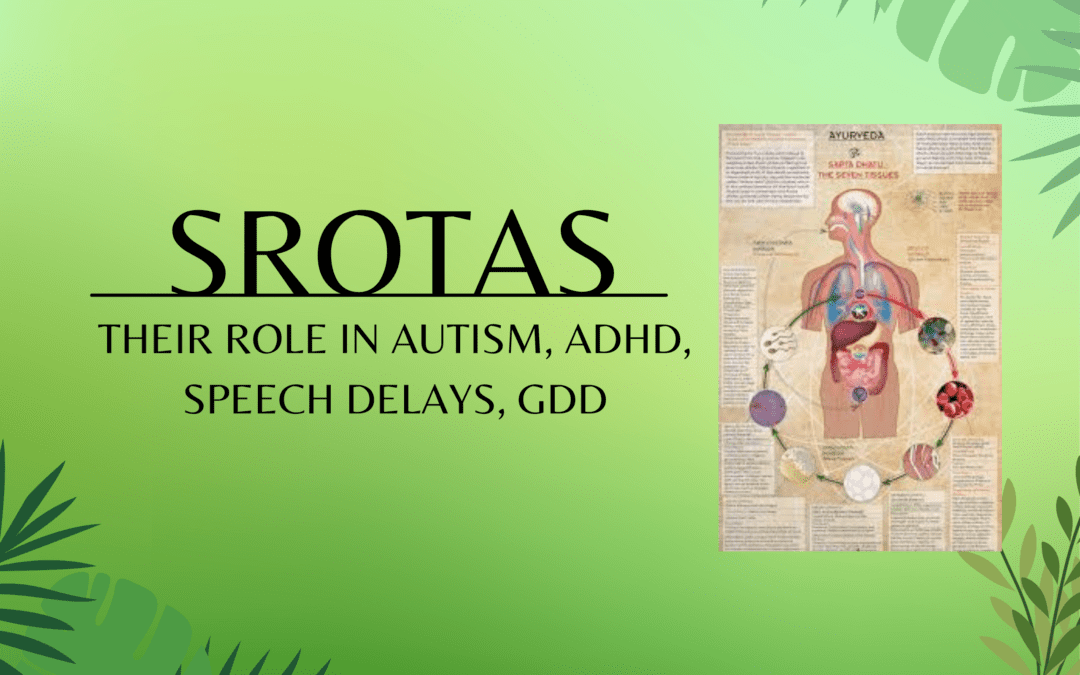Our bodies are designed to function according to a natural rhythm called the Circadian rhythm. This internal clock governs our sleep-wake cycle and is heavily influenced by natural cues such as Sunlight and Darkness.
• As night falls, the absence of light signals the brain to produce Melatonin, the hormone that promotes restful sleep.
To optimize this natural rhythm, exposure to Natural sunlight during the day is essential. It regulates Melatonin production, helping align our body clock for a better night’s sleep. Conversely, at night, avoiding bright screens or artificial light sources helps maintain healthy melatonin levels, fostering deeper and more restorative sleep.
Dinacharya: Aligning with Nature’s Clock for Better Sleep
For children with autism, ADHD, and speech delays, maintaining a consistent daily routine is even more crucial. These children often struggle with irregular sleep patterns, heightened sensitivity to changes, and difficulty winding down due to sensory overload. Here’s how Dinacharya can help:
- Early Morning Grounding: Start the day with grounding or earthing—spending a few minutes barefoot on the grass, soil, or sand. This practice helps connect the body to the earth’s electrons, reducing inflammation, stress, and anxiety. Grounding also stabilizes the body’s circadian rhythm, improving sleep quality. For children, this can be a calming sensory experience, setting a peaceful tone for the day ahead.
- Morning Exposure to Sunlight: Following grounding, exposure to the gentle morning sunlight helps reset the circadian rhythm, enhancing mood, focus, and alertness. A morning walk or playtime outdoors can be both stimulating and soothing for children.
- Structured Mealtimes: Eating at consistent times aligns digestion with natural body rhythms, reducing stress and aiding relaxation, which is critical for children who may have sensitive digestive systems or food sensitivities.
- Physical Activity: Incorporating regular physical activities, like yoga or playtime in the open, helps release energy, reduce anxiety, and promotes better sleep at night.
- Calm Evening Routines: In the evening, activities should be calming and predictable. Dimming lights and avoiding bright screens an hour before bedtime supports the natural production of melatonin. Calming rituals, such as gentle massage or storytelling, can help these children transition smoothly to bedtime.
- Early Bedtime: Encouraging an early bedtime, ideally between 8-9 PM, can help align with the natural dip in body temperature and melatonin surge that supports deep sleep. Consistent sleep timing enhances sleep quality and overall health.
Benefits for Children with Autism, ADHD, and Speech Delays:
• Reduced Anxiety and Inflammation: Grounding has been shown to reduce anxiety levels and lower inflammation, contributing to a more balanced emotional state and healthier body function.
Following Dinacharya—a routine inspired by nature’s rhythm—not only supports healthy sleep patterns but also brings a sense of calm, balance, and predictability, particularly important for children with special needs. Simple practices like early morning grounding, consistent exposure to natural light, and structured daily routines can significantly enhance their quality of life.
Let’s embrace these ancient Ayurvedic practices to nurture a healthier, more harmonious lifestyle for our kids and ourselves. Stay in sync with nature, and enjoy better sleep and overall well-being!
If you have more questions or need personalized guidance on maintaining a healthy lifestyle for you or your child, consider consulting with Dr. Santhisree at Sree Prathama Ayurvedam Hospital. Reach us on +91 9989759719 for consultation.




0 Comments